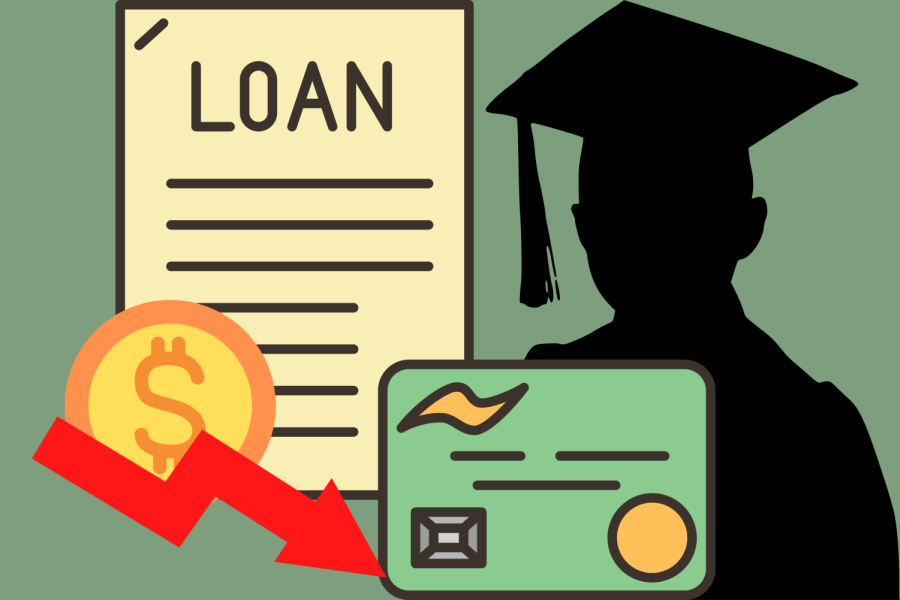Economic professor weighs in on debt forgiveness
September 7, 2022
Eastern Economic Professor Teshome Abebe weighed in on the likelihood of the economy crashing and the effects of Biden’s student loan forgiveness plan.
Biden announced a student loan forgiveness plan for college students on Aug. 24 ranging from $10,000 to $20,000.
There are some criterias for who qualifies for student loan forgiveness. Individuals have to make less than $125,000 a year, or $250,000 for households.
Anyone under these conditions will soon be able to apply for a $10,000 student loan forgiveness.
Those who have received Pell Grants are eligible for $20,000 forgiven.
Abebe explained the current amount of total student debt in the United States and the expected forgiven amount of debt.
“Biden’s proposed cancellation of some student debt was expected for a while,” Abebe said. “To date, around $34B has been forgiven. With the current proposal via executive order, the total amount forgiven could be as much as $300B. Total student debt is estimated at about 1.6 trillion.”
The $1.6 trillion is a generous prediction towards just how much student debt there is, Abebe said.
The Illinois Fifteenth Congressional District Representative Mary Miller, released a press statement regarding concerns of Biden’s student loan forgiveness plan.
“Joe Biden announced a $300 billion taxpayer-funded bailout for leftist colleges and universities that prey upon young people by selling them worthless ‘humanities’ degrees, so they can become foot soldiers in the Marxist revolution destroying America,” Miller said. “In the midst of the Biden Recession, Joe Biden is using working class taxpayers to pay off his donors and voters at a time of historic debt and record inflation.”
Many other politicians have expressed concerns of how the market and economy would be affected by Biden’s student loan forgiveness plan.
One continued concern expressed was this would lead to the market crashing.
However, Abebe said the United States’ economy is strong enough to withstand the predicted billions in loan forgiveness.
“The $300B figure out of about $1.6t [estimated total student debt amount] is 18 percent; and the $300B is barely one percent of our GDP (Gross Domestic Product) — very tiny and would not make much difference in this big economy to make it ‘crash,’” Abebe said. “Our economy is more resilient than that.”
Abebe said the effects of Biden’s student loan forgiveness plan are both negative and positive.
He said it does not treat students of different time frames fairly.
“On the negative side, it treats students of different times differently, and that is somewhat unfair,” Abebe said.
However, Abebe said the loan forgiveness could have positive effects on the economy as well.
“On the positive side, borrowers do not have to postpone major life events like having children or buying a house,” Abebe said. “These help fuel the economy and prevent the economy from being stunted. It also has positive effects on reducing wealth disparities among the different racial groups. Debt reduction could also help college enrollment, saving some colleges from their demise.”
Though, Abebe also mentioned concerns how Biden’s plan will affect future student debt.
“Overall, there are issues that this debt may not solve completely,” Abebe said. “For example, would students continue to borrow recklessly, are there better ways of funding college and what happens to the overall volume of student debt? These are legitimate questions and the debate around them is worth having.”
Abebe advised current and past college students to look into this opportunity and see if they qualify.
“Who was forgiven, what colleges were forgiven, etc. are details students need to check out as soon as the particulars are spelled out by the Education Department and the financial advisors in student service offices,” Abebe said.
Ultimately, Abebe said Biden’s plan is more so a political act.
“Student debt reduction is also a political act,” Abebe said. “Biden campaigned on it, and now delivered. Seen in that light, it is a political transaction as Biden tries to maximize his electoral advantage as well.”
Madelyn Kidd can be reached at 581-2812 or at [email protected].




















































